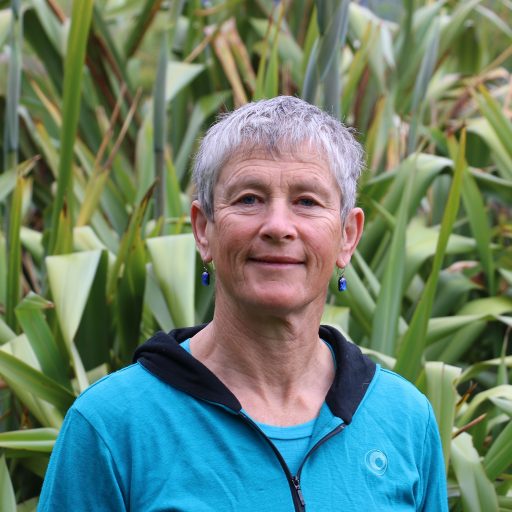Why we go to the mountains – simplicity…where the focus is basic survival
I hypothesise that the rise of AI will be driven by humans having created systems upon which we are dependent, and that are beyond the complexity humans are capable of dealing with. I think we are already at that point.
When researching this article, I started from a previous impression that the maximum number of items humans can hold in their brain at once is around seven. This was based on people being able to remember seven digit phone numbers, at a stretch. However, more recent findings suggest that the most we can hold in working memory are three or four items, when we can’t use tricks such as sequences or grouping to aid memory.
Just to clarify, this is not about how much total information you can remember. That could be as much as 2.5 petabytes of data (or 200 years of streaming TV) in our one billion neurons. This is about how many pieces of information you can deal with relatively simultaneously. Four doesn’t seem like many. And here’s a recent example I encountered of where our systems require humans to have far greater capacity to compile multiple streams of information than a maximum of four. I’m sure you can think of other examples of your own.
Never before have I felt so sympathetic with farmers as when working on a funding proposal for Organics Aotearoa New Zealand about Farm Management Plans. Farmers have to develop Farm Management Plans and have their performance against them audited annually. This seems reasonable. There are primary production standards that need to be met in terms of the quality of the primary produce for sale and the impact of farming on the broader environment. We need farmers to know what they are trying to achieve and their achievement to be measured.
I’d like to put a little plug for organic farmers here. Organic production is based on the belief that maintaining the quality of the productive and wider environment is just as important as the quality and quantity of produce that comes from your farm. Justice and fairness to all living things are also core organic goals. This translates into organic farmers not using synthetic chemicals to control pests or diseases, or as fertiliser and carrying out additional activities, such as associated indigenous plantings, to maintain biodiversity. This might be how we would like all primary producers to behave. Except, it costs a lot more than ‘standard’ farming and no one wants to pay high prices for their food. Too bad for the environment and the animals.
But back to complexity…if you are an organic farmer you have to meet the Organic standards and be audited by one of two auditing bodies (AsureQuality or BioGro). So far so good. A bit complicated because there are two separate organic standards but the industry is working with the Ministry for Primary Industries to create a single National Organic Standard. However, if you are an organic farmer you will also have to meet the standard of your sector e.g. kiwifruit or milk. This standard may have a special category for organic farming, or it may not. So as an organic farmer you could have to take two sets of standards into account in your Farm Management Plan.
The government has recently brought out National Policy Statements regarding Greenhouse Gas Emissions (GHGs) and Freshwater. They are soon bringing out another on Indigenous Biodiversity. These Policy Statements each require farmers to demonstrate how they are meeting the resultant standards in their Farm Management Plans. The number of standards farmers have to incorporate into their Farm Management Plans is now up at four – the maximum we can simultaneously think about, or five – too many. Oh, but did I mention that Regional Councils are responsible for measuring Freshwater standards. They produce their own planning documentation which farmers must adhere to. That’s definitely a problem, now we are up to six things to consider.
Not only do farmers potentially have to put together six different frameworks into their Farm Management Plans, they have to include how to operate profitably so they can continue their businesses. And consider the practicalities of how to collect all the data in the field that the various standards require. To achieve this they need to read and synthesise multiple documents of tens of pages which document the goals, standards and regulations for each aspect of environment or production that their farm is supposed to perform to. It’s quite likely that people didn’t go into farming because synthesising large amounts of information and distilling them into a plan was their favourite activity.
To be fair to the government, they are doling out a small number of millions of dollars for primary producer organisations to streamline the multiplicity of standards so farmers can write simple Farm Management plans. The various Ministries know they operate as silos and do not consider each other’s policies when writing their own. They know that there may be direct conflicts in what the different policies require farmers to do – it may not be possible for farmers to meet all the standards simultaneously. So thoughtful of government to then provide money in order that primary producers can sort out the dog’s breakfast of standards that bureaucrats have created.
One can imagine an AI being programmed to input all the policies, statements, standards, regulations…compare them all and find the gaps, overlaps and conflicts…then output recommendations for streamlining all the documents. The AI could even rewrite the documents and make them all match up. The AI would be a black box as far as the bureaucrats or farmers were concerned because it would consider far more documents and parameters than people could ever manage to do themselves. Is that the future we want? I think it’s the one we’re creating.

Discover more from Jane Shearer
Subscribe to get the latest posts sent to your email.




2 thoughts on “Excessive Complexity”
Not just that, but they are managing a complex biological system, with a massive uncontrollable variable called the weather. Few people choose to go farming, they are usually born into it, but those who do farm struggle with so many things. Sadly people like to treat them as a homogenous large business, when they are mostly remarkably different small businesses. Their day-to-day challenges are vast, and little different be they organic or non-organic. I teach both.
Scary? Bring on the AI, definitely! Particularly if the farmer is over 65 and would prefer to utilise a bit of commonsense and vast experience- his own and that of his family!